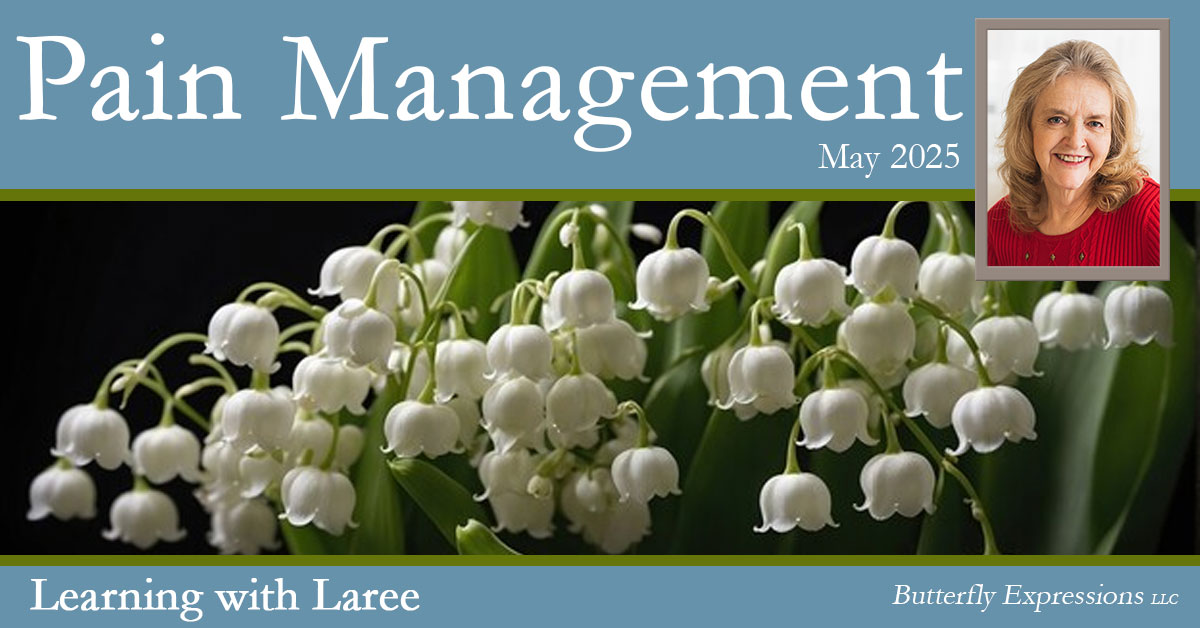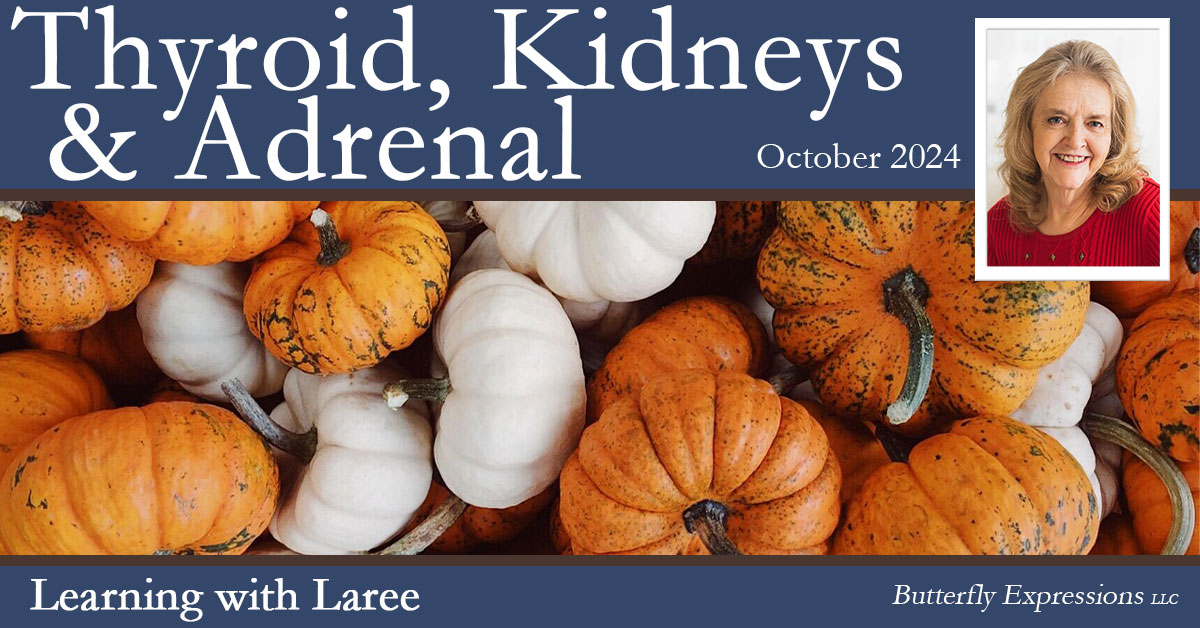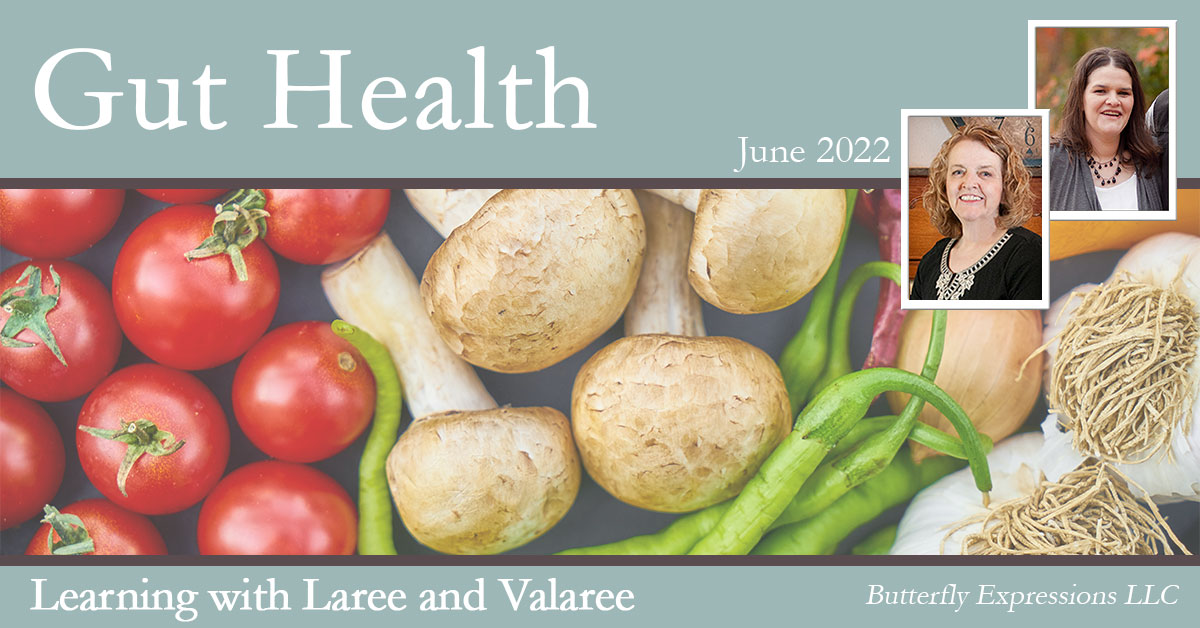this is a page for
Browsing Tag: Digestive System
I have been a teacher all of my life! I was given the responsibility to lead the music in my LDS primary meetings when I was 11 years old and should have been just an attendant. By the time I was 14 years old, I was also the teacher of a Sunday School class of 4-year old children. (Primary was on Mondays in those long ago days, so it was possible for me to do both!) I loved those callings!
What does this have to do with this newsletter highlighting Butterfly Express, LLC specials for other Foot Zone specialists? Not much, maybe, except a desire to share some of what I have learned over these many intervening years!. I am getting older by the day, and sharing what I have learned, often by hard experience, is the best of the things that fill my days!
I have been zoning feet for almost 30 years, guessing as best I can about the ages of my children at the time. Although our family was already using both herbal and homeopathic remedies, learning to ‘zone’ feet made a significant impact on the health of my family, just as it had done for me when I began getting zoned regularly a few months before begging to be taught to do it myself. My husband’s health was very sketchy at the time, as it had been for many years already. I believe, as I did then, that regular foot zones kept him with us. His health, even now at 73 years old, is better than it was then!
After some deliberation and visiting with an employee who also knows the Zone, we decided to feature the Synergy Kit to offer these ‘whole-body’ oils to zone therapists at a discount, along with a bit of information about various body systems and the essential oil blends, mostly formulated by me, that I have found useful during foot zones over the years.
The end of summer and the upcoming return to school for children, teens, and college students can be a stressful time for everyone involved, including parents. This seems to be true to some extent, no matter the age of the child or even how well the previous school year went. And then, the school day usually requires the student to focus and pay attention while sitting at a desk—something many children find quite difficult. Then there are the issues of getting homework done and back to school with the children, young or old!
The remedies focused on as specials and offered at discounted prices, were chosen with these issues in mind. However, as you will quickly see from the product descriptions, they address energy levels, the ability to focus and pay attention, and handling anxiety from any cause and in any type of situation.
As I have said often and with emphasis over many years, “All drugs have side effects!”
As an introduction to this section on Alternative Pain Management, I am including parts of an “FDA Drug Safety Communication” issued on July 9, 2015. If you wish to read the entire communication (with pages of additional information for patients and consumers and even more information for Health Care Professionals along with a comprehensive Data Summary) I am providing the link to the FDA announcement itself on the U.S Food & Drug Administration’s web page.
This statement certainly is true of the drugs used for pain management, as is illustrated by these statements taken from the FDA website itself. The use of herbs, essential oils, and Blessed Water or Homeopathic remedies is an effective and safe way to manage pain.
The ADRENAL GLANDS, KIDNEYS AND THYROID are super-intelligent organs. When I consider the number one cause of malfunction in these closely related organs, the word that comes to mind is STRESS—especially chronic, seemingly unending types of stress! Stress will, of course, quickly damage the adrenal glands. Since the adrenal glands and the thyroid are in constant communication with each other, malfunction of the thyroid gland is eminent and almost unavoidable.
I love the study of anatomy (where things are placed in the body) and physiology (what their functions are and why they are where they are). Placing those little adrenal glands right on top of the kidneys, makes perfect, beautiful, harmonious sense! Because of their importance to survival, they are placed with each other in a well-protected spot in the body! See the full list of topics.
In October we will be talking about Respiratory and Flu. The flu season is already upon us so it is a good time to review the best essential oils, blessed waters, and herbal remedies to use when you are in the trenches of the flu. I am also excited to announce that there is a new product, Elderberry Nighttime, that I am sure you will love. Elderberry is well known for use with fevers and for strengthening the immune system. We have seen amazing results so far with Elderberry Nighttime helping people to sleep. Please take a few minutes and review what may help you and your family through the flu this year. See the full list of topics.
In June we will be talking about gut health. Having a healthy digestive system is important. So much of our health depends upon nutrition – not just what we eat, but how what we eat is digested and absorbed (or not absorbed as the case may be). A healthy gut plays an important part in immune health.






